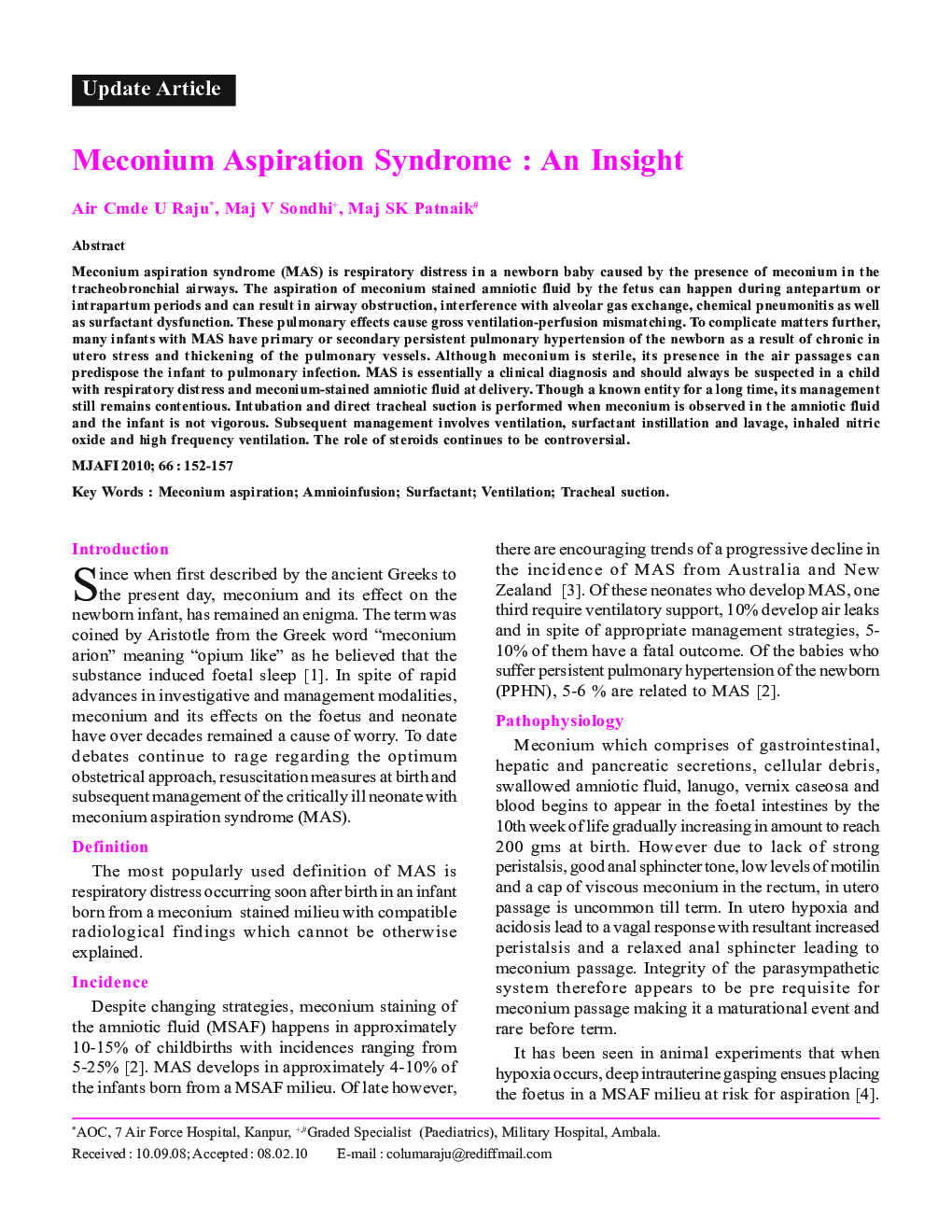| Article ID | Journal | Published Year | Pages | File Type |
|---|---|---|---|---|
| 3162271 | Medical Journal Armed Forces India | 2010 | 6 Pages |
Meconium aspiration syndrome (MAS) is respiratory distress in a newborn baby caused by the presence of meconium in the tracheobronchial airways. The aspiration of meconium stained amniotic fluid by the fetus can happen during antepartum or intrapartum periods and can result in airway obstruction, interference with alveolar gas exchange, chemical pneumonitis as well as surfactant dysfunction. These pulmonary effects cause gross ventilation-perfusion mismatching. To complicate matters further, many infants with MAS have primary or secondary persistent pulmonary hypertension of the newborn as a result of chronic in utero stress and thickening of the pulmonary vessels. Although meconium is sterile, its presence in the air passages can predispose the infant to pulmonary infection. MAS is essentially a clinical diagnosis and should always be suspected in a child with respiratory distress and meconium-stained amniotic fluid at delivery. Though a known entity for a long time, its management still remains contentious. Intubation and direct tracheal suction is performed when meconium is observed in the amniotic fluid and the infant is not vigorous. Subsequent management involves ventilation, surfactant instillation and lavage, inhaled nitric oxide and high frequency ventilation. The role of steroids continues to be controversial.
